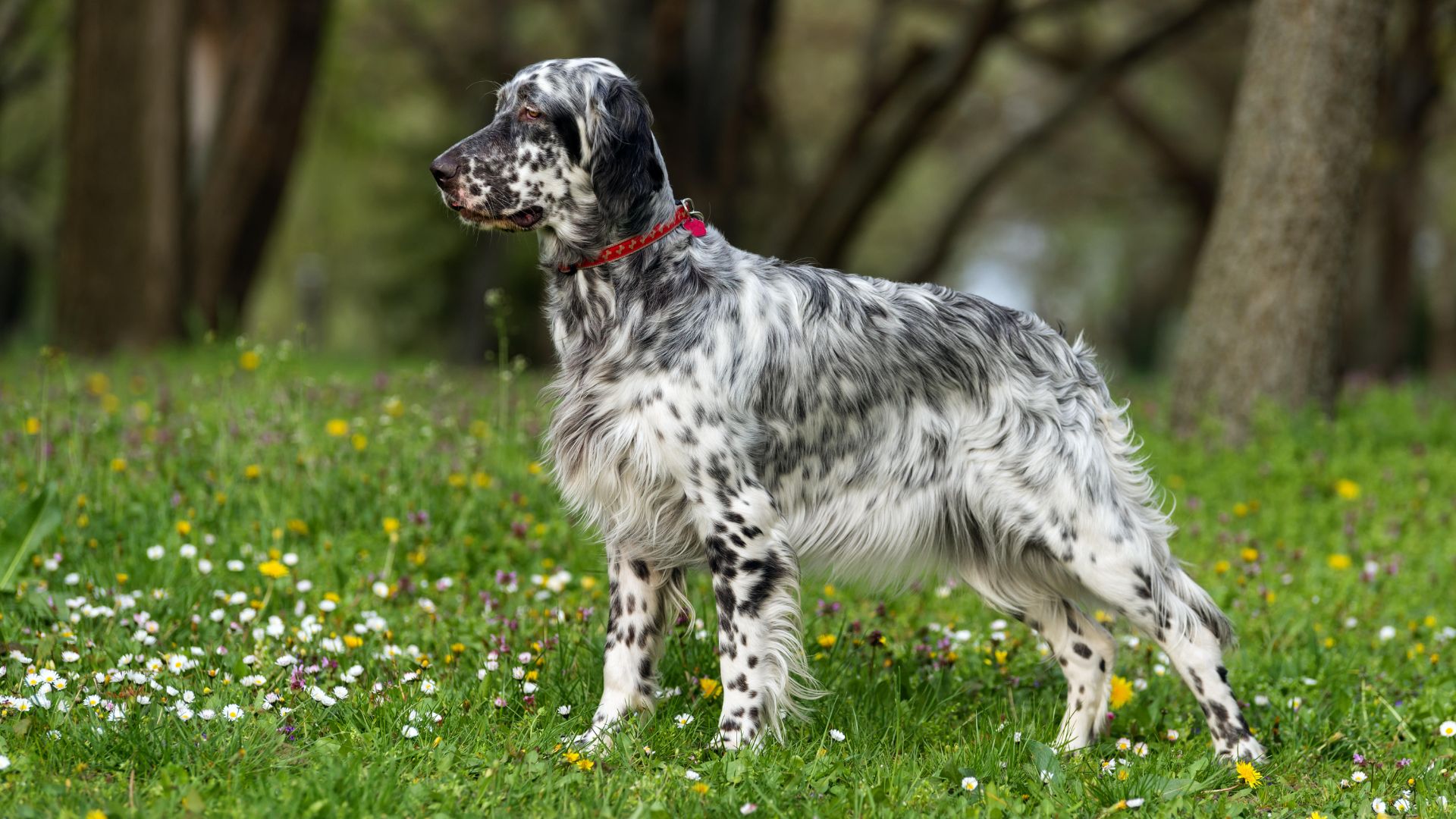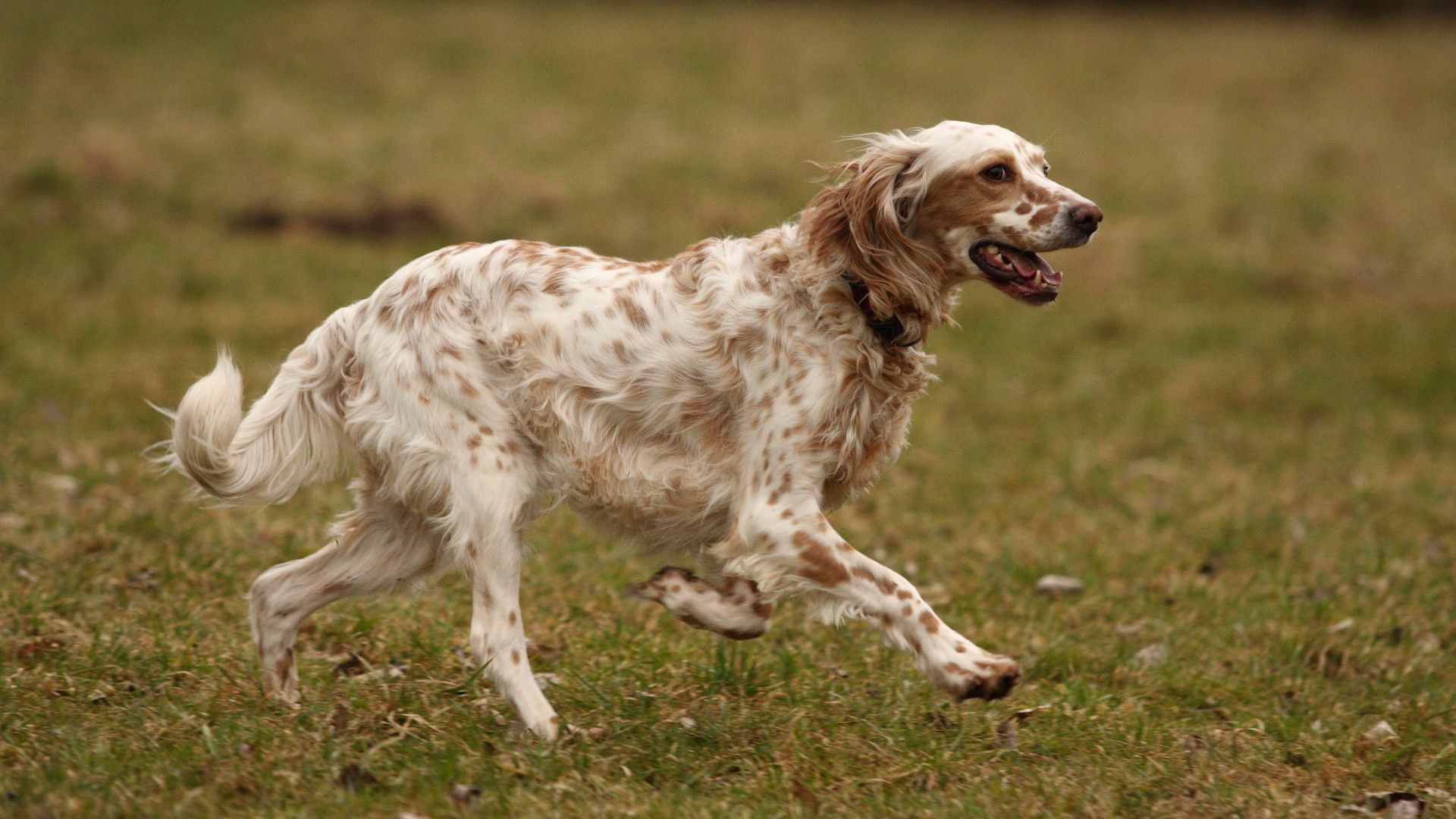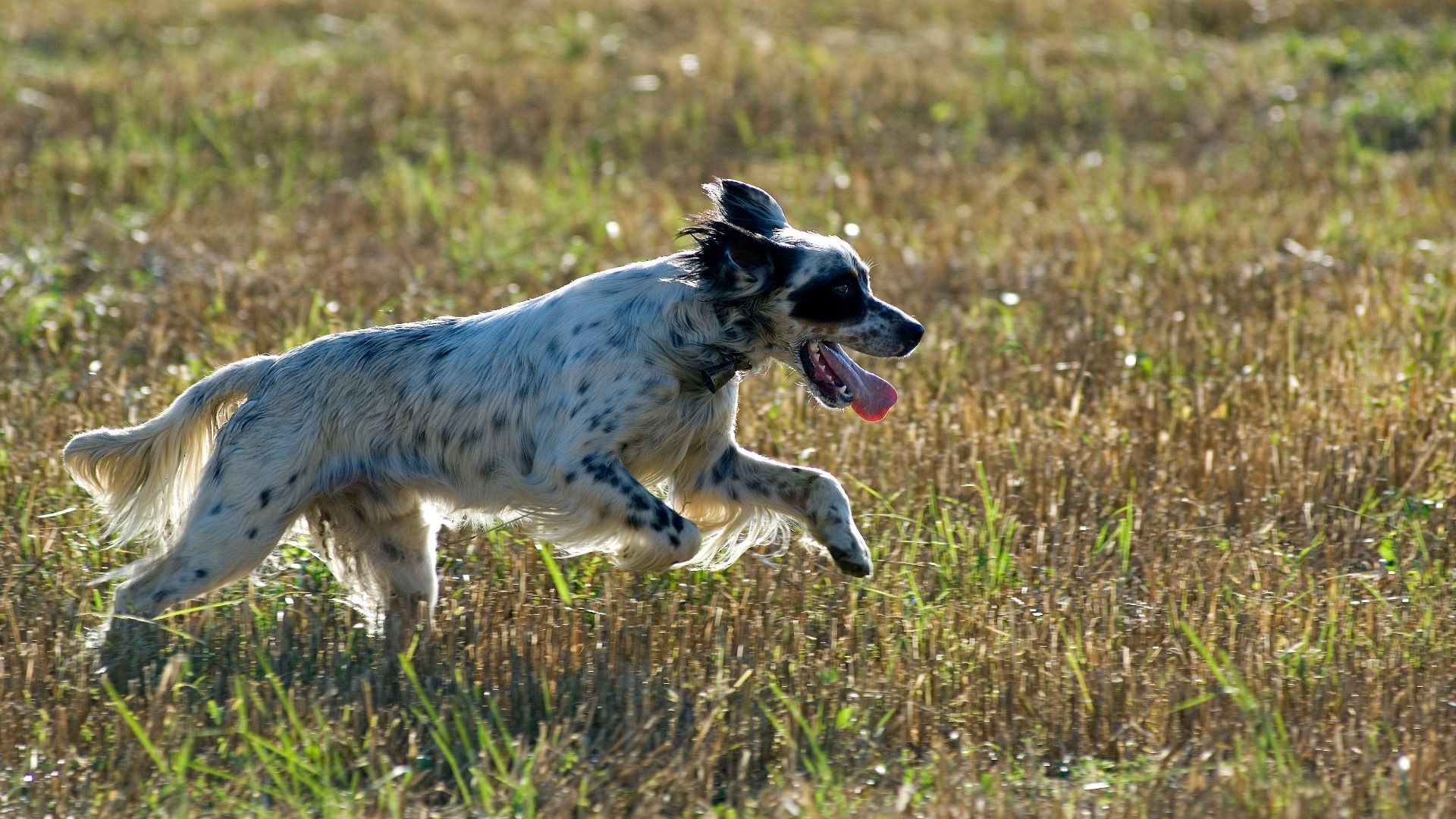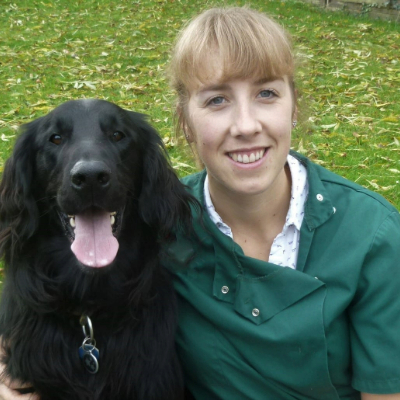English Setters have show-stopping good looks but there’s so much more to this breed
With plenty of energy, the English Setter is a proud yet amiable breed and a welcome addition to an active family home

Get the best advice, tips and top tech for your beloved Pets
You are now subscribed
Your newsletter sign-up was successful

Life expectancy: 12 years
Size: 25-27 inches (male); 23-25 inches (female)
Coat: Medium
Temperament: Friendly, affectionate, energetic, gentle
Exercise needs: More than two hours a day
Origin: England, UK
English Setters were developed in England in the 1800s, initially bred as hunting dogs to locate game, whereupon they would “set” – crouch low and freeze. These friendly dogs can come in a range of colours, and their unique speckled markings are referred to as “belton”.
They are a large yet elegant breed, with a graceful neck, proud head and soft expression. English Setters have a strong hunting instinct with plenty of stamina, but they are quite happy to make themselves comfy in a home environment provided that all their needs – physical and mental – are met. They love working their minds, so puzzle games or toys and training exercises are a great way to keep them happy.
English Setters have an affectionate, gentle nature and they love being around their owners. They can be great family dogs provided they have the correct training and socialization from a young age, as they get on well with children and other dogs.
However, they can have a penchant for digging, jumping and roaming, so it’s important to be in the know about the breed before committing to a puppy. Read on to find out more, with expert advice from Dr Rebecca MacMillan.
Are English Setters good family dogs?
English Setters make great family dogs, getting on well with people and other dogs. However, their energetic nature means they can be boisterous in play, so they are perhaps better suited to those with older children.
Dr MacMillan adds: “English Setters are affectionate, sociable and playful, which are all great qualities for a family pet. They will usually get on well with children provided they have had the right early socialization and training.”
Ensuring they have plenty of outlets for their energy – such as frequent walks, training sessions and plenty of playtime – will help prevent boredom and destructive tendencies in the home.
Get the best advice, tips and top tech for your beloved Pets
Do English Setters shed?
English Setters have long, silky coats, and they are considered moderate shedders. However, regular grooming – as explained below – will help to keep this shedding under control.

What grooming needs to English Setters have?
These dogs are famous for their striking coats, so keeping them in tip-top condition is a must.
“English Setters will need brushing two or three times a week to keep their coat looking good,” agrees Dr MacMillan, adding, “American English Setters have a lot more fur compared to the finer coat of working English Setters, so these dogs can require a bit more work. Some owners may have their English Setters trimmed or clipped to keep things neat.”
A long-toothed metal comb is a useful tool for working through any tangles that might have developed between grooming sessions. Tangles can quickly develop into mats, which are uncomfortable for dogs and can rapidly become painful, leading to skin problems.
As with all dogs, daily teethbrushing is advised, as well as monthly nail trimming.
Are English Setters high energy?
Thanks to their heritage as working dogs, English Setters have plenty of energy to keep going all day long. This means that they need regular daily exercise to keep them happy and healthy. Dr MacMillan advises “up to two hours of exercise each day, depending on their age and health status”.
And while English Setters will relish long walks or hikes, or tagging along for a jog or a bike ride, these intelligent dogs require plenty of mental stimulation as well as physical. This could be in the form of training sessions, puzzle toys and playtime – or even agility or obedience training.
As long as their energy needs are met, English Setters will happily settle down when at home and try their hardest to be lapdogs – they are very affectionate with their owners.
Do English Setters bark a lot?
“English Setters are not more vocal than any other dog breed, but they will bark if they are under-stimulated, overly excited or wary about something,” says Dr MacMillan. “Making sure your dog is appropriately socialized and receiving enough exercise will help keep unwanted barking at bay.”
They may well bark at strangers coming to your door, but they are certainly not known as aggressive dogs, with a reputation for being friendly and sociable.

Wisdom Panel Breed Discovery DNA Kit | Amazon
Not sure exactly what breed your dog is? This kit screens for 365+ breeds – because knowing every detail about your dog helps you understand how best to care for them.
English Setter common health problems
Hip and elbow dysplasia, as with many pedigree dogs, can be common in this breed.
Dr MacMillan explains: “These developmental joint abnormalities can cause joint pain, mobility issues and early-onset arthritis. It is important to buy your English Setter puppy from a reputable breeder who has health-screened their dogs for these conditions.”
As well as hip and elbow screening, Dr MacMillan recommends breeding dogs be screened for inherited eye issues, such as progressive retinal atrophy (PRA), another common finding in English Setters.
Another health problem to look out for is hypothyroidism.
“Affected dogs produce too little thyroid hormone, leading to weight gain and lethargy, as well as skin and coat changes,” says Dr MacMillan.
Skin allergies can also cause an issue in this breed, which can lead to itchiness and secondary skin infections.
“Some English Setters can be affected by ectropion, or droopy eyelids,” adds Dr MacMillan. “These sag away from the eyeball, contributing to dry eyes and eye infections.”
Should I buy an English Setter?
This friendly, affectionate and good-looking breed is well-suited to an active, outdoorsy family that can match their energy needs. Provided they have ample opportunities to run and play, they make gentle family companions in the home, with their sweet-natured temperament shining through.
If you are considering an English Setter, do keep in mind that they are a working breed, so they thrive off mental stimulation as well as physical. They are intelligent dogs and benefit from regular training sessions.
Giving them a “job” – such as agility, obedience or gundog training – will keep their minds working while also giving an outlet for some of their energy.
The Complete Guide To The English Setter | Amazon
Using interviews with 28 top English Setter breeders, this book has created an in-depth look at what it really takes to successfully live with, raise, and train an English Setter.
Read next: Other setter breeds

Rebecca is a veterinary surgeon who graduated in 2009 from the Royal Veterinary College in London. She has a wealth of experience in first opinion small animal practice, having done a mixture of day-to-day routine work, on-call emergency duties and managerial roles over the years. Rebecca enjoys medicine in particular and she is proud to have recently achieved a BSAVA postgraduate certificate in small animal medicine (with commendation).
She writes on various feline and canine topics, including behavior, nutrition, and health. Outside of work and writing she enjoys walking her own dog, spending time with her young family and baking!
Edited by Georgia Guerin.

Victoria Jones is a freelance writer at PetsRadar. She has a decade of experience working on equestrian and countryside magazines – including on PetsRadar's sister title Horse & Hound for five years. She has done a variety of different jobs over the years, including sub-editing, writing, video editing and marketing.
Victoria is currently dog mum to Maple, a six-year-old German Shorthaired Pointer with endless energy. She also helps to look after her husband's marine fish tank, with her favourite inhabitants being the two clown fish, Michel and Francois.
She has previously owned cats and horses as well – at one point having a menagerie of two dogs, two cats and two horses, which kept her very busy indeed.


